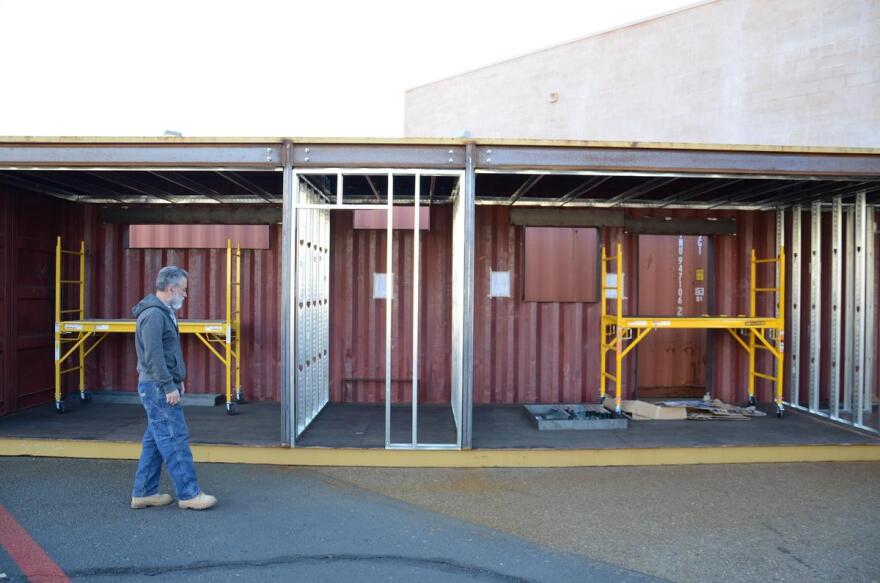During our series, "Priced Out: The Housing Crunch," we've looked at the ways rising housing costs have affected various groups within the community, and we've delved into options moving forward.
Now, we're going to look at something a little different.
Reno Public Radio's Noah Glick met up with local developer, Masih Madani, as he's building a home with used shipping containers.
"So I'm going to give you a little quick tour of the containers that we've been working on the last couple of months," says Madani, as he opens a door leading from the welding department at Western Nevada College to a broad, open space that sits two separate shipping containers.
"So this one is a two-container, two-bedroom, one-bath 640 square-foot home. It's not as tiny as it may sound, but it's made of two shipping containers," he says.

Two shipping containers are used as shells where Madani makes framing out of steel for two separate bedrooms, a bathroom, kitchen and living room. Each container holds one half of the room. Once complete and on site, the two containers will be joined together to form the full home.
For Madani, this is something he's always thought about, but didn't have the skills to do until he took classes at Western Nevada College.
"Up until summer of last year, I actually didn't know how to weld myself," he says. "Because I had no skills that forced me into thinking in a particular way in the construction industry, I was free and clear to think any way that made sense."
Madani says the build time is much less than that of a traditional stick-built home.
"You're looking at basically three people, one month," he says. "So, it's three man months, and you get a unit completely end-to-end finished."
Plus, he says shipping containers are stronger structures, and offer some benefits homeowners won't find in wooden houses, such as no mold, mildew or termites.
"We build steel buildings all day long, every day in the commercial sector. We just don't necessarily do it in the residential sector."

Madani moved from Los Angeles to Reno to retire, but was amazed at the number of homeless individuals in the community when he got here. He said people can survive outdoors in L.A. thanks to a moderate, warm climate yearround. But with harsh winters in Reno, he wanted to do something to help those in need.
"A custom house starts somewhere around $150-160/square foot on up. Tract housing is about $100/square foot on up. Manufactured housing is somewhere around $75-80/square foot. We came into this with the idea that we're going to beat $50/square foot," he says.
Madani says everyone is entitled to shelter, food and basic human rights, and it's that philosophy that drives him to move forward.
"We're not all created equal. We all don't have the same opportunities as we grow up in life," he says. "So, sometimes we have to kind of level out the playing field a little bit and give people the opportunity. To me, home equals hope. So if you give somebody a home, then they have hope. And hope is what always you to move forward and build on your life."
The home has been placed on a piece of land with concrete foundation and will be completely finished within the next couple of weeks. Madani says he's also working on a pilot program with the Reno Housing Authority.







